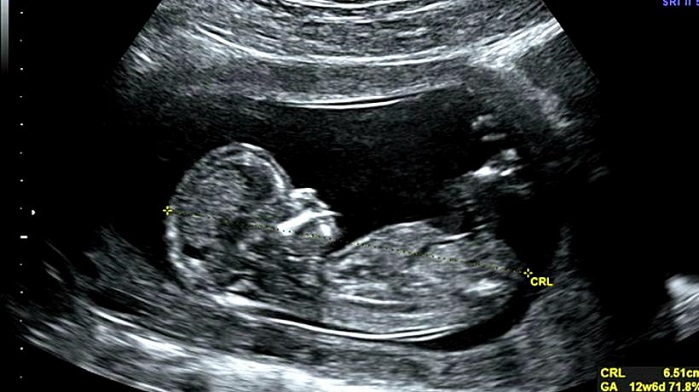It will not be long before the U.S. Supreme Court issues its ruling on an important Louisiana abortion case, one that asks if the state can require abortionists to have hospital admitting privileges to treat patients with emergency complications.
NBC News reports the ruling in June Medical Services v. Russo could come any day now.
The 2014 Louisiana law at the center of the case requires abortion providers to have hospital admitting privileges to treat patients with emergency complications. If allowed to take effect, it could close two of the three abortion facilities in the state.
State leaders say the law protects women and ensures abortion facilities have the ability to treat women who are suffering from potentially life-threatening complications. There also is evidence that the abortion facility at the center of the case may be guilty of covering up the sexual abuse of young girls.
But abortion activists claim the law puts an “undue burden” on access to abortion because most of the abortion facilities in the state may close. The abortion facility Hope Medical Group for Women and the Center for Reproductive Rights are suing to overturn the law.
“If the court ignores its own precedent and upholds a law designed to shut down clinics, it will fuel the nationwide attack on abortion access,” said Nancy Northup, president for the Center for Reproductive Rights. “Politicians hostile to abortion rights will no doubt feel emboldened by the court and ramp up their attempts to cut off abortion access.”
But Louisiana Solicitor General Liz Murrill told NBC News that the state is trying to protect women.
SUPPORT LIFENEWS! If you like this pro-life article, please help LifeNews.com with a donation!
“This has always been bipartisan legislation that was led by women,” she said. “To the best of my knowledge for six years, they haven’t done anything to guard against the potential for the law to take effect. That alone tells me that they aren’t seeking to protect women because they aren’t even trying to obtain privileges.”
The Supreme Court also will consider a second important issue in the case: whether abortion facilities have standing to sue on behalf of their patients. Often, it is abortion businesses, not women, who sue to overturn pro-life informed consent laws, health and safety regulations and other laws to protect women and unborn babies from abortion.
Louisiana state attorneys told the court: “There is little evidence that their patients’ interests actually align with Plaintiffs’ position that the burdens of such protections exceed their value. On the contrary, undisputed record evidence (including of Plaintiffs’ poor safety record, inadequate credentialing practices, and questionable efforts to undermine the law at issue) shows Plaintiffs are directly adverse to their patients’ interests. It is hard to imagine a worse case for third-party standing.”
The U.S. Supreme Court struck down a similar Texas law in 2016, arguing it burdened women’s access to abortion. However, the Fifth Circuit Court of Appeals upheld the Louisiana law in 2018, saying it “does not impose a substantial burden on a large fraction of women.”
The Supreme Court heard arguments in the case in March.
In November, the Louisiana Department of Justice announced suspicions about alleged criminal activity that may have happened at the Hope Medical Group. It accused the abortion facility of hiding evidence of criminal and professional misconduct from the Supreme Court. The state asked the Fifth Circuit to unseal documents in the closely-watched case.
A few weeks later, a Fifth Circuit ruling suggested one abortionist in the state may be performing abortions that lead to second-trimester babies being born alive.
The shocking revelations are reminiscent of the horrors that were uncovered at a Philadelphia abortion facility nearly a decade ago. Abortionist Kermit Gosnell later was convicted of murdering three newborn babies, putting women’s lives at risk and numerous other crimes at his “house of horrors” abortion facility.
The Gosnell horrors were a key reason why Louisiana and other states passed abortion clinic regulations such as the one currently at issue before the U.S. Supreme Court. Gosnell got away with his gristly, murderous abortion practice for years because of Pennsylvania’s lack of abortion clinic regulations.
Both pro-life and abortion activists are watching the case closely to see how the conservative-majority court will rule. This will be the first abortion case for President Donald Trump’s appointees, Justices Neil Gorsuch and Brett Kavanaugh.
The case also will be a good indication of where Chief Justice John Roberts stands on abortion jurisprudence. Last year, Roberts voted with the four liberal justices to block the enforcement of the Louisiana law. However, in 2016, he sided with the conservative justices on the court to uphold a similar Texas law.
Previously, Rachel Morrison, a lawyer with the pro-life organization Americans United for Life, said this summer should give Americans a better idea about the justices’ stances on the abortion issue. She said she does not think the court will overturn Roe v. Wade soon, but it may consider abortion limits.
“The court across the board in a lot of areas seems to take a more step-by-step approach,” she said. “I don’t think that’s going to change when it comes to abortion anytime soon.”








